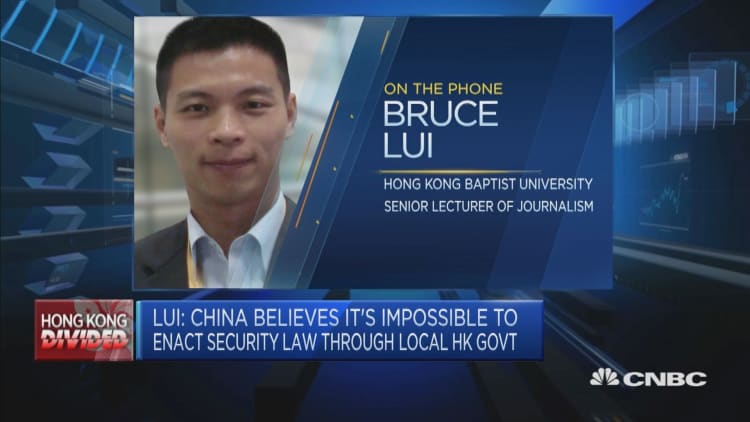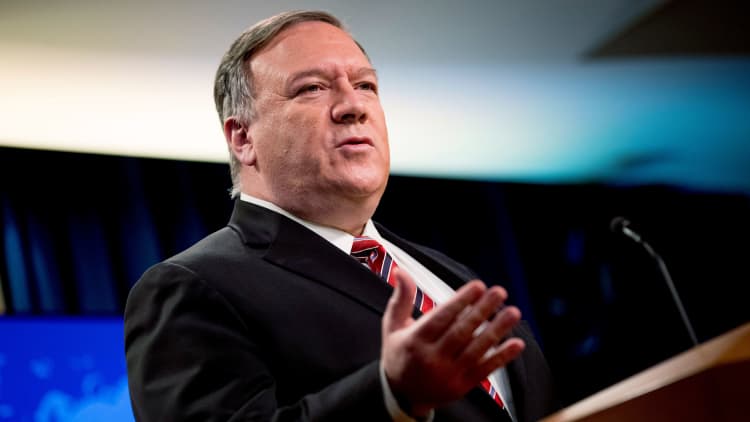
China's proposed national security law will cause "huge harm" to Hong Kong's independent judiciary and create "turbulence" in the business sector, according to an academic.
Beijing introduced the measures last week, which would target secession, subversion, terrorism, and foreign interference. They are expected to be passed on Thursday and advanced to the Standing Committee, Beijing's top leadership.
The concern is that the "ultimate interpretation of the law" would lie with the National People's Congress (NPC), rather than Hong Kong's court system, said Bruce Lui, senior lecturer at Hong Kong Baptist University's journalism department. He told CNBC's "Squawk Box Asia" on Wednesday that even if queries and debates are initiated in Hong Kong, the worry is that the final decision would lie with the NPC, which would interpret it in a "mainland way."
"So I think it is kind of (a) declaration of a 'one country, one system' and then the end of Hong Kong('s) jurisdiction of our legal reputation," Lui said.
Hong Kong operates under the "one country, two systems" principle which grants its residents greater freedoms than their mainland counterparts. Beijing's proposed law exacerbates concerns about the further erosion of those freedoms.
Lui explained that the fear is the proposed law would also allow for Beijing to set up its own agency in the city to supervise and direct the local government in enforcing the measures.
Business 'turbulence'
Mainland officials have argued the measures would increase stability in Hong Kong, which would help promote business activity in the city.
Lui said that is "just theoretically right" because the proposed law would change the "whole nature of the system." He argued that the danger is Hong Kong would no longer make and enact its own laws and simply implement those from Beijing.
"So, we cannot expect (that) everything (is) changed but the business environment is still good, being unchanged," he said.
His comments echo those of U.S. national security advisor Robert O'Brien who recently told NBC's Chuck Todd, "It's hard to see how Hong Kong could remain the Asian financial center that it's become if China takes over."
On Wednesday, U.S. Secretary of State Mike Pompeo told Congress that Hong Kong was no longer autonomous from China. That determination risks Hong Kong's favorable trade relationship with the U.S, as well as the city's status as a major financial hub.

Lui also said that Beijing's proposed security law threatens Hong Kong's special economic status with the U.S., creating "turbulence" for businesses.
A statement released by the U.S.-China Business Council (USCBC) urged concern that the "proposed legislative actions could undermine Hong Kong's special economic status and the conditions that we believe have served China and the region so well over the decades."
Hong Kong's trade with the U.S. is not subject to the same tariffs as that of mainland China. If the city lost its special status, it would no longer be exempt from the tariffs, including those levied during the trade war.
Under the United States-Hong Kong Policy Act of 1992, Hong Kong is treated separately from mainland China on matters in areas that include commerce and trade. But it risks losing that status under a provision of the U.S. Hong Kong Human Rights and Democracy Act of 2019, which stipulates that the city must remain sufficiently autonomous to enjoy that privilege.

